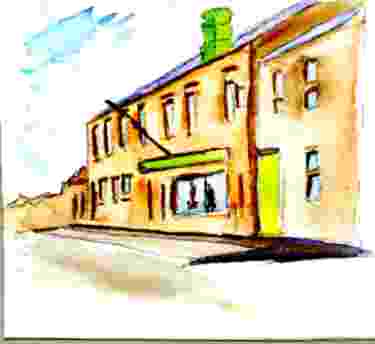 The setting up of the co-operatives was hindered, as the villages would already have shops that would have the franchise from the mine owner to sell in the village. When the Cramilington Co-operative first set up it had to start off in Cramlington village and not in East Cramlington where the idea had developed this was because due to the system in operation at the time no one could sell goods within a set area around the villages.
The setting up of the co-operatives was hindered, as the villages would already have shops that would have the franchise from the mine owner to sell in the village. When the Cramilington Co-operative first set up it had to start off in Cramlington village and not in East Cramlington where the idea had developed this was because due to the system in operation at the time no one could sell goods within a set area around the villages.The Co-operative movement first began in Rochdale, Yorkshire the ideas that were used there were passed on through self help pamphlets which gave the basic ideas of the society the ideas of the co-operatives were used by miners living in Cramlington in 1863. When the local Co-operative was first formed, local shop owners and trades people were seen as a threat and the founders of the Cramlington co-operative society actually armed themselves and locked themselves in the room they first used as a shop in fear that the local shop owners would try and burn them out. Nothing happened however and the society grew from strength to strength and built shops all over the area in the 19th century (Names of Villages). The Co-operators wanted a shop in Dudley but could not find any suitable buildings to use (in the early days they would just modify rooms in houses to use as shops) failing to find a suitable place in Dudley they set up shop in Annitsford then it moved to Dudley when an opportunity across and in doing so 'Evicted' the people who lived in the cottages they were to use, the tailoring and drapery departments never seemed to do well . The Co-op began employing women as shop assistants not out of any idea of giving equality but because the Co-op had been loosing money in a recent pit strike. The Committee thought it would be a way of saving money if the women could cope doing the job as they could be paid less that the men who had previously been employed in the posts. The Co-operative Society also tried to bring Gas lighting to the area and running water but could not compete with the companies that were set up for that purpose only. Although the Cramlington Co-operative Society spread throughout the area during the 19th century and Co-operatives as a whole are given a great deal of credit for improving the welfare of the working classes in the areas they were established. The Co-ops did not allow credit and advocated thrift this meant that as a shop they would only serve people that could manage to pay their way. If the Co-ops had been fully supported by the people living in the colliery villages there would have been no room for the independent traders. When looking at trade directories for the villages in the area there are many grocers and butchers in each of the villages how if the co-ops where so good could these traders continue with their businesses in competition with a co-operative? As I have already said the Co-operatives did not allow credit so they in fact only supported the workers in the villages who could afford to pay for their goods. The independent traders would have allowed goods on tick or Credit which would mean that they were themselves providing a service for the less well off in the communities providing the goods until the customer could pay them back. So although the co-ops tried to provide every type of service, shoes tailoring, butchering and groceries in each village their is competition from independent traders.
This site was created May, 1999 and is maintained by D.J.Kane BA(Hons) Dip. Eur. Hum. (Open)
Contact Dave Kane.